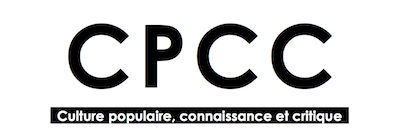VersUS at the X International Seminar and Conference on Canadian Studies: Canada, Managing Social and Cultural Diversity at the University of Holguin, Cuba April 27-29, 2016
Program:
- Roxanne Rimstead, Université de Sherbrooke
Paper: PUZZLING OVER INDIGENOUS KNOWLEDGE AND LITERARY FORMS
One of the most challenging aspects of teaching native writing as a non-native over the past two or three decades has been the lack of access to indigenous knowledge. As indigenous authors and critics speak out increasingly on what constitutes indigenous knowledge, however, non-natives reading indigenous literature can see more clearly how traditional forms and figures might be read in both early and contemporary native writing, and how indigenous poetics might reside in new ways of writing and reading both emergent and traditional forms. This paper considers the puzzle of indigenous knowledge within literary forms. How can we understand native orature as performance and as literature rather than mere artifact? How can we recognize indigenous figures such as Weesageechak, Windago, B’Gwas, and d’Sonoqua as more distinct than the non-native construction of the Trickster? What kind of indigenous knowledge is necessary to decode the hybrid contemporary novels by Tompson Highway, Joseph Boyden, and Eden Robinson? Can non-natives read indigenous literature in the same way that indigenous readers can? This paper broaches epistemological problems in reading and teaching indigenous literature across cultures and comments on the politics of incorporating indigenous knowledge in the way we read.
Workshop: READING TRADITIONAL FIGURES AND FORMS IN INDIGENOUS WRITING
This workshop will introduce concerns about reading traditional forms and figures in indigenous writing in Canada. In particular, we will look at how much of what we read as native writing is hybrid in nature, expressing traditional beliefs or figures through non-native literary forms. We will consider the transcribed orature of Orpingalik, the Netsilik Inuit orator, who composed “My Breath.” Oral performance, the mediation of transcription and translation, and the need to understand different notions of song and spirit will be discussed in a reading of his famous song. We will also consider the emergence of traditional figures and forms in contemporary indigenous writing by Highway, Robinson, and Boyden. We will look at specific examples of the trickster figure and the non-native conception of this figure compared to its multiple traditional forms, such as the Windigo and the B’Gwas.

Roxanne Rimstead is Professor of Comparative Canadian Literature at Université de Sherbrooke, in Québec, Canada, where she specializes in class and cultural studies, minority writing, feminist criticism, indigenous literature, life writing, and cultural memory. Her book The Remnants of Nation: On Poverty Narratives by Women (U of Toronto Press) won the Gabrielle Roy Prize in 2001. An early feminist analysis of Emily Carr’s Klee Wyck won the Don D. Walker Prize (Western Lit. Assoc.). In 2003, she guest-edited Cultural Memory and Social Identity (Essays on Canadian Writing); in 2011, she co-edited Prison Writing/Writing Prison (Canadian Literature); and in 2009, she created, with grad students, a book-length website on Culture from Below:
http://culture-from-below.recherche.usherbrooke.ca/.
Rimstead is on the editorial boards of Canadian Literature, Tulsa Studies in Women’s Literature (USA), and Race, Gender and Class (USA). Two critical collections on contested space are forthcoming and co-edited with colleagues Domenico Beneventi and Simon Harel.
- Robert Schwartzwald, Université de Montréal
Paper: THE CHURCH, SEXUALITY, AND POWER IN MICHEL-MARC BOUCHARD’S LA DIVINE ILLUSION
Even though it is now widely recognized that many of the instigators of Quebec’s “Quiet Revolution” of the 1960s were themselves practicing Catholics identified with reformist currents embodied in specific religious orders (e.g. Jesuits, Dominicans) or theological positions (e,g. Teillhard de Chardin, Edmond Mounier, Jacques Maritain), the Quiet Revolution is still largely seen as a period of mass rejection of Catholicism as borne out by the collapse of church attendance and a new, widely embraced secular worldview undergirded by a strong anti-clerical spirit. In recent years, the issue of the sexual abuse of children by priests has become the primary lens through which the Church’s deleterious role in Quebec has been focused. In La Divine Illusion, Michel-Marc Bouchard places sexual abuse at the heart of his drama, but shows it to be but a single, if essential element in a web of power relations between economic and religious interests that rewarded those who acquiesced to institutionalized structures while punishing those who resisted. By restoring issues of social class to questions of intellectual freedom and sexual agency, Bouchard is staging the national past in a way that arguably only someone of his generation is now able to do. Bouchard’s is the last generation to have directly felt the pre-Quiet Revolution authority of the Church in the practices of everyday life. Today, erotic freedoms are often regarded by a younger generation as a matter of “rights” divorced from their intersectional potency within dynamics of class and nation. Bouchard’s play viscerally allows us to revisit the discursively “prehistoric” moment of such rights in Quebec and thus to suggest the complexity of their formulation, propagation, and valence in today’s social formation.
Workshop: MANAGING DIVERSITY, OR NEGOTIATING IT? : RECENT « VALUES DEBATES » IN CANADA
If Canadian multiculturalism and Québec interculturalism were conceived as distinct but related strategies for managing the ethnic and racial diversity of their respective polities, two recent debates have amply demonstrated the limitations and vulnerabilities of these approaches. The 2014 Charter of Values debate in Quebec and the attempt to make the niqab and so-called “barbaric cultural practices” defining issues in the 2015 federal election campaign re-framed the challenges of managing pluralist societies as ones of identifying and controlling “unruly” elements who lie outside normative patterns for inclusion within a given state formation. By way of contrast, the current campaign to welcome Syrian refugees initiated by the new federal government and supported strongly by the new government of Quebec proposes an entirely different mise-en-scène: no longer called upon to denounce offenders, whether they be wearing “conspicuous” religious symbols or allegedly engaging in uniquely offensive practices, citizens are now urged to partake in a process that appeals to Canadian humanitarianism and openness, themselves posited as national values. To what extent can this mise-en-scène be regarded as a kind of mass civics lesson aimed at replacing a solipsistic normativity with a dialogical model that sees diversity within pluralist societies as a matter not of management, but of negotiation; a negotiation that necessarily transforms the pluralist state itself?

Robert Schwartzwald is a professor in the Département de littératures et de langues du monde and Director of the interdisciplinary Master’s program in International Studies at the Université de Montréal. Before coming to Montréal, he directed the Center for Crossroads in the Study of the Americas in Amherst, Massachusetts. He has written extensively on Quebec literature and film, with a particular focus on representations of sexuality in narratives of national and cultural modernity. He is a member of the Centre de Recherche interuniversitaire en littérature et culture québécoises (CRILCQ) and the Centre de Recherches interdisciplinaires en études montréalaises (CRIEM). A former Editor of the International Journal of Canadian Studies/ Revue internationale d’études canadiennes, he received the Governor General’s International Award for Canadian Studies in 2008. His t book on Jean-Marc Vallée’s highly acclaimed film C.R.A.Z.Y. (Arsenal Pulp Press) was released at the end of 2015.
- France Théoret (écrivaine/writer)
Paper: ARCHITECTURE DE L’OEUVRE ROMANESQUE DE LOUKY BERSIANIK« Ce que je veux, dit l’Euguélionne? TOUT! JE VEUX TOUT! »
Poète, romancière et essayiste, (1930 – 2011) de son nom de naissance Lucille Durand, Louky Bersianik a choisi un pseudonyme aux consonances amérindiennes.
Je l’ai connue en 1976, l’année de la parution de son roman magistral “L’Euguélionne”, un premier roman, gigantesque, un ovni, la référence majeure en regard de l’écriture des femmes dans l’histoire littéraire. À 45 ans, en 1976, elle avait préalablement écrit des milliers de pages sans jamais publier. Louky Bersianik avait aussi établi, au cours des années soixante, l’architecture de son oeuvre à venir, composée de trois séries romanesques autour de la condition des femmes.
Elle a conçu une oeuvre immense, partiellement écrite et publiée. Elle a encore écrit des recueils de poésie et des essais. En 2006, je la pensais injustement oubliée. Nous avons donc réalisé six entretiens maintenant publiés aux Éditions du remue-ménage.
Louky Bersianik est également une pionnière de la féminisation de la langue.
Après un bref regard sur son oeuvre publiée et sur les textes inédits, je montrerai comment, dans son roman “l’Euguélionne”, elle a élaboré une première phase de la féminisation, une révolution linguistique d’une importance capitale.

France Théoret, poète, romancière et essayiste, est née à Montréal. En 2012, elle a reçu le prix Athanase-David pour l’ensemble de son œuvre. Parmi ses romans sont inclus Une belle éducation, Montréal, Boréal, 2006; Huis clos entre jeunes filles, Montréal, Les Herbes rouges, 2000; La femme du stalinien, Montréal, La Pleine Lune, 2010; L’été sans erreur, poésie, Montréal, l’Hexagone, 2014. Elle a été écrivaine en résidence à l’Université du Québec à Montréal en 1995-1996. Elle a été nommée Ambassadrice de la Faculté des Lettres et sciences humaines de l’université de Sherbrooke en 2006. En 2002, elle a traversé la Russie de Saint-Pétersbourg à Sotchi pour écrire le roman Les Apparatchiks vont à la mer Noire.
Elle a donné de nombreuses conférences au Québec, au Canada. aux Etats-Unis, en Europe, et en Nouvelle-Zélande. Des conférences nationales et internationales, des lectures publiques en poésie, des entrevues à la radio et dans les librairies ont accompagné ses années d’écriture.
- Pat Smart – Carleton University
Paper: THE ADVANTAGES OF SEEING ONESELF AS “EXCEPTIONAL” : DENISE BOMBARDIER AND THE AUTOBIOGRAPHICAL IMPULSE
On the first page of her autobiographical novel Une enfance à l’eau bénite (A Childhood Bathed in Holy Water), Denise Bombardier describes her need as a child to prove she was “exceptional” in order to triumph over the overwhelming tendency towards submission and conformity in her home, school and Church milieu. Not surprisingly, this crushing of individuality in Quebec culture before the Quiet Revolution of the 1960s produced a striking lack of autobiographies, particularly by women. Indeed, the autobiographies by women published even since the 1960s are characterized by a “difficulty of being” and an often violent need to throw off various obstacles before the autobiographical “I” can emerge.
One of the best known Québécoises both at home and abroad thanks to her high profile television career and her outspoken newspaper columns, Denise Bombardier is also a prolific writer, but her best-selling works of fiction, biography, memoir and non-fiction have never been taken seriously by literary critics. This paper will examine the autobiographical impulse in many of Bombardier’s writings, such as her biography of Céline Dion, her memoirs L’Anglais and Jackpot, and her recently published Dictionnaire amoureux du Québec, and search for the roots of this confident autobiographical stance in her account of her childhood in Une enfance à l’eau bénite.

Patricia Smart is a Distinguished Research Professor and Chancellor’s Professor Emerita at Carleton University. Her book Ecrire dans la maison du Père: l’émergence du féminin dans la tradition littéraire du Québec won the Governor General’s Award in 1988 and two of her later books —Les Femmes du Refus global (1998) and De Marie de l’Incarnation à Nelly Arcan: se dire, se faire par l’écriture intime (2014) have been finalists for the same prize. She is also the author of Hubert Aquin agent double (1973), of an English translation of André Laurendeau’s diary (1991) and of a critical edition of Claire Martin Dans un gant de fer (2005). She was elected to the Royal Society of Canada in 1991 and received the Order of Canada in 2004. Her latest work, De Marie de l’Incarnation à Nelly Arcan: se dire, se faire par l’écriture intime (Boréal, 2014) won the Gabrielle Roy Prize of the Association of Canadian and Quebec Literatures and the Prix Jean-Éthier-Blais of the Fondation Lionel Groulx as well as being short-listed for the Governor General’s Award and Ontario’s Trillium Award.
- Nicole Côté, Université de Sherbrooke
Paper: THE NOVELS OF NELLY ARCAN AND THEIR RELATIONSHIP TO THE BODY AND TIME
Nelly Arcan, who wrote autofictions (self-narratives) which quickly found their way to the top charts in Québec and in France (Putain/Whore, Folle/Hysteric), also wrote two novels, A Ciel ouvert (Breakneck) et Paradis, Clé en main (Exit), which are the object of this paper. I would like to show that these particular works reveal a conception of time which is cut out from the future, as its characters remain in the circular time of trauma, walling themselves in an indefinite present. Arcan’s narratives make up for this loss of temporal perspective by projecting to the forefront women who attempt to stop time by preventing their bodies from aging. Also her novels manage to anchor some of their characters in a salutary virtual narrative, be it only with the possibility of change brought by the narration’s critical consideration of the conditions which allowed the transformation of layers of values into actions cemented through tradition.
In À Ciel ouvert (breakneck), the zooming in on parts of women’s bodies utterly decontextualizes them, by the same token evacuating time’s passage on their skin. In fact, the common denominator to the three protagonists of Arcan’s first novel lies in their own body’s anatomisation or in that of their friend or lover, reflecting the fragmentation of time. Hence, the verticalisation for which the title sets the scene in the original French title, À Ciel ouvert, signals the trio of characters’ absence of limits, its hubris, as well as, on a formal level, the near impossibility of structuring a narrative, that is, to align time in order to produce a plot which would open up the future.
In the author’s second and last novel before she suicided, Paradis, clef en main (Exit), the present is always only expected to repeat or to end abruptly. At least, this is the reading that is suggested until the very end of the narrative. Paraplegic Antoinette narrates her story from her bed since her failed suicide. Among the reasons which brought her to use the services of a company that specializes in the assistance to suicide is this never-ending present, without horizon of expectations. Says she[1] : «All my life resembles a wall of grey bricks, a view on an absence of opening, on a lack of horizon» (my translation; PCM, 73). However, the ending suggests the possibility of a return towards the linearity of time, which would mean a new freedom for Antoinette.
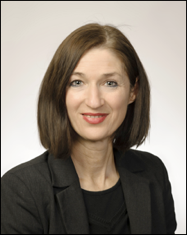
Nicole Côté, Université de Sherbrooke, published many articles and book chapters on the literatures of Québec and CanadaShe co-edited three books : Legacies of Jean-Luc Godard (Waterloo, Wilfrid Laurier University Press, 2014), Expressions culturelles de la francophonie (Québec, Nota Bene, 2008) et Varieties of Exile. New Essays on Mavis Gallant (New York, Peter Lang, 2002), as well as short story anthologies of Canadian authors that she also translated, Vers le rivage (L’instant même, 2001), Nouvelles du Canada anglais (L’instant même, 1998).
- Linda Warley – University of Waterloo
Paper: BEFORE THE TRUTH AND RECONCILIATION COMMISSION: RESIDENTIAL SCHOOL MEMOIRS
With the release on December 15, 2015 of the Truth and Reconciliation Commission (TRC) Report, all Canadians now have the opportunity to learn about the residential school system and its impact on generations of First Nations, Metis and Inuit people. Much of what is contained in the report are first person testimonies. The Commissioners travelled the country over a period of several years and invited anyone who had been involved with the schools (including members of the religious orders that ran them and former teachers, as well as students and their families) to come forward and tell their stories. Such witnessing is powerful, because of the opportunity it affords people to tell their own experiences and, through telling and being heard, have their truth validated. It is also powerful for those who heard—or now can read in the published report—these stories. But before the TRC, residential school survivors had written and published their stories as memoirs. In this presentation I will discuss the various rhetorical strategies Indigenous memoirists have used to represent their residential school experiences. I will argue that although first person oral testimonies given as part of the TRC are important in that they function as evidence, the memoirs published over the past several decades are a more effective way for individuals to assert indigenous agency. Through writing books, Indigenous authors such as Isabelle Knockwood, Basil H. Johnston, Jane Willis, and Alice French are able to shape the way their stories of residential school are constructed and received.
Workshop – (with Alan Filewod) CULTURAL RECONCILIATION: WHAT IT MEANS AND HOW TO ACHIEVE IT.
In this workshop the presenters will explore ways in which literary and theatrical culture in Canada can promote a genuine state of reconciliation, and will survey the state of Canadian cultural industries. We will look at some of the major literary and dramatic voices, and ask how we, as non-Indigenous scholars in positions of academic privilege, can establish productive alliances with Indigenous scholars and artists.
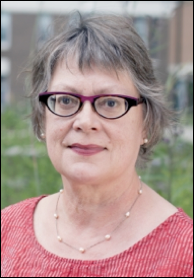
Linda Warley is Associate Professor in the Department of English Language & Literature at the University of Waterloo. She teaches contemporary Canadian literature and has recently developed a new undergraduate course on Indigenous literatures. Her research is in the filed of Life Writing, and she has published articles on Indigenous memoirs, graphic memoirs, and multimodal life narratives.
- Alan Filewod, University of Guelph
Paper: RECONCILIATION AND THEATRICAL INDIGENIZATION
This paper is an enquiry into the conditions of First Nations / Indigenous theatre work in the context of the release of the Report of the Truth and Reconciliation Commission of Canada, which was established to inquire into the long history of abuse and broken communities produced by the Canadian government’s Residential School policy for Indigenous children. The report of the commission states that “reconciliation is about establishing and maintaining a mutually respectful relationship between Aboriginal and non-Aboriginal people.” The first step to establishing a respectful footing is to expose the past and, for the non-Aboriginal majority, to understand that Indigenous people in Canada remain suppressed in severe colonialism and the oppressive binaries it produces, in which multicultural Canada has failed to recognize multicultural indigeneity. I argue that a genuine process of reconciliation entails indigenization of cultural industries, the first step to which is an analysis of how cultural power is racialized and institutionalized. Although Canadian theatre – as a social practice and a disciplinary profession – has embraced Indigenous theatre artists and plays, it has itself remained trapped in a binary that still locates “Native” or “Aboriginal” theatre as a subaltern category that challenges, renews and exoticises a professional mainstream. In this binary “the mainstream” is marked by its diversity and limitless field of invention while Indigeneity replays cultural presence and assertion.
This paper explores the paradoxes that emerge from this binary by examining the particular history and reception of Kaha:wii Dance Theatre’s The Honouring, a dance-drama that celebrates the Haudenosaunee (Iroquois) warrior tradition and the military alliance with British forces in the War of 1812.
Workshop – (with Linda Warley) CULTURAL RECONCILIATION: WHAT IT MEANS AND HOW TO ACHIEVE IT

Alan Filewod is Professor of Theatre Studies and Director of the School of English and Theatre Studies at the University of Guelph.
His books include Committing Theatre: Theatre Radicalism and Political Intervention in Canada (2011), Performing Canada: The Nation Enacted in the Imagined Theatre (2002), Collective Encounters: Documentary Theatre in English Canada (1987), and (with David Watt) Workers’ Playtime: Theatre and the Labour Movement since 1970 (2001.) His critical edition of the banned communist play Eight Men Speak is available from University of Ottawa Press. He was Editor of Canadian Theatre Review from 1988 to 1995, and Co-Editor from 1995 to 2002.
In professional activities he has served as president of the Association for Canadian Theatre Research (1992-4) and of the Association for Canadian and Quebec Literatures/ Association des littératures canadienne et québécoise (2004-7).
- Michelle Ariss –Champlain College. Sherbrooke. Québec
Paper: THE SOCIAL AND CULTURAL WORK OF TWO EDITORS OF BOOKS IN CANADA: THE CANADIAN REVIEW OF BOOKS (1971-2008)
Book review magazines like Books in Canada, a privately-owned book review periodical that was published in Canada for over thirty-five years, are sites of social and cultural work. In addition to their archival value as repositories of information about books published in a country, each issue of a book review magazine, by virtue of its form and content, can be interpreted as a response to and an attempt to shape the social and cultural milieu in which the magazine and the books it reviews are published.
By focusing on a selection of reviews, front covers, and letters from the editor, my presentation examines, with the aid of visual images and of magazine samples, ways in which the editorial decisions of Val Clery, the founding editor of Books in Canada (1971-1973) and of Olga Stein, the magazine’s editor at the time of its demise (2001-2008), can be read as responses to Canada’s social and cultural diversity, and as attempts to manage it, with, however, starkly contrasting degrees of success. My presentation concludes with a consideration of the impact of twenty-first century technology and of globalization on the ability of book review magazine editors to mirror and influence a country’s social and cultural diversity.
Workshop – WRITING REVIEWS AND INFLUENCING READERS: THE BASICS OF WRITING SUCCESSFUL BOOK REVIEWS
In this pre-conference workshop students will learn and practise the basics of writing a brief review of a book of their choice. Participants are asked to bring a novel, an anthology or a collection of poetry or stories that they are familiar with, preferably by one or more Cuban authors. Students will also be introduced to basic components of editing reviews and to key steps in compiling them into a book review magazine.
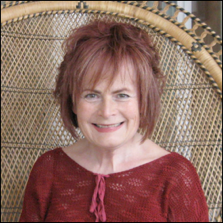
Michelle Ariss is an English teacher at Champlain College Lennoxville, in Sherbrooke, Québec where she is also co-coordinator of the English Department and coordinator of the College’s English peer-tutoring service. She is a graduate of the Comparative Canadian Literature Ph.D. program at the Université de Sherbrooke under the supervision of Dr. Roxanne Rimstead. Michelle’s SSHRC, FQRSC and institutionally-funded dissertation is entitled “The Rise and Demise of a Book Review Magazine: Interpreting the cultural work of Books in Canada, 1971-2008.”
A contributing editor to Books in Canada from 2004 to 2007, Michelle was a member of the organizing committee of two graduate student conferences hosted by the Université de Sherbrooke’s Comparative Canadian Literature program. In addition to co-editing the proceedings of those conferences with Simon Gilbert and with the collaboration of Dr. Rimstead, Michelle was a research assistant for the Culture-from-Below online bibliography directed by Dr. Rimstead. While teaching at Bishop’s University in 2004, Michelle founded the Morris House Reading Series. This invitational series, intended to introduce students and the public to some of Canada’s best-known authors, celebrated its 10th anniversary in March, 2014.
- Nancy Wright – Université de Sherbrooke
Paper: A QUESTIONING OF HISTORY: DIONNE BRAND’S AT THE FULL AND CHANGE OF THE MOON
A questioning of history is a prerequisite to eliminating the systemic inequity produced by neo-colonial social and economic structures in the Western world. Such an interrogation figures prominently in representations of slavery and colonialism through memory in the following recent novel under investigation in this study: Dionne Brand’s At the Full and Change of the Moon. Using memory, this African-Caribbean-Canadian writer illustrates how dominated groups are marginalized within Western historical memory, make historical revisions, and re-construct the foundations of identity. Brand demonstrates that today’s reality is pre-sent from the past.
Brand’s novel illustrates that the myths of Western historical memory are different from those of collective cultural memory of the once-colonized and that this dichotomy creates identity problems. This paper characterizes Brand’s novel as fictional autobiography or biography of ethnographic proportion. It counters Western historical memory and restores collective cultural memory through strategic uses of historical markers, intertextual references, dates, cultural markers, historic personages, songs and stories from the oral tradition. This paper examines forms of memory that are transposed into present reality through literature.
Workshop – DISCOVERING AFRICAN-CARIBBEAN-CANADIAN WRITERS
This teaching workshop shows that African-Caribbean-Canadian literature is an aspect of Western historical memory helping maintain a “dominated–dominating” paradigm within and between nations. It discusses Max Dorsinville’s ironic representation of the Québécoise bourgeoisie and Dionne Brand’s depiction of marginal reception of Black culture in Toronto to highlight neo-colonial elements of Canada’s pre-sent reality. This workshop will be illuminated by the work of Maurice Halbwachs, Albert Memmi, C.L.R. James, and Francoise Lionnet. Evoking the cultural identity theories of Aime Césaire, Édouard Glissant, Derek Walcott, Chris Bongie, Dionne Brand, Max Dorsinville, and Dany Laferrière, this thesis recalls through Canadian literature a Caribbean literary tradition rooted in the reconstruction of memory. Ms. Wright will introduce works such as Dionne Brand’s At the Full and Change of the Moon, Austin Clarke’s The Polished Hoe, Max Dorsinville’s James Wait et les lunettes noires, and Dany Laferrière’s Pays sans chapeau.
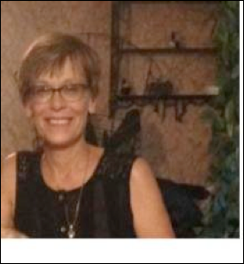
Nancy Wright is currently a PhD candidate at Université de Sherbrooke in Comparative Canadian Literature. She wrote her MA thesis at Sherbrooke on African-Caribbean-Canadian writers and the representation of cultural memory in their work. She is currently Editor of the (national publication) Justice Report and Editorial Secretary of the (peer-reviewed) Canadian Journal of Criminology and Criminal Justice for the Canadian Criminal Justice Association / Association canadienne de justice pénale (CCJA-ACJP (Nov. 2011-Present).
- Lori Saint-Martin- Université de Québec à Montréal
Paper: ENJEUX DE DÉSIR ET DE POUVOIR DANS LES RELATIONS SOEUR-FRÈRE DU ROMAN QUÉBÉCOIS CONTEMPORAIN
De nombreux romans contemporains portent sur un couple jusqu’alors relativement peu exploré au sein de roman familial au Québec: celui que forment la soeur et le frère. De tels romans posent la question d’une possible confusion identitaire entre Mëme et Autre, font souvent état d’abus de pouvoir et conduisent dans de nombreux cas à l’inceste désiré réel, à la mort violent, voire au meurtre. La communication aura pour but de préciser ces enjeux à partir d’un petit nombre d’exemples.
Workshop – LITERARY TRANSLATION IN QUÉBEC/CANADA
This workshop will look at three aspects of English-French literary translation in Québec-Canada : economic issues (how much and how literary translators are paid and by whom), political tensions (relative status of English and French in Canada, linguistic variations and power imbalance between Quebec and France) and aesthetic issues (visions of translation, how to render voice, tone, cultural context), etc. Ethical issues around translation and self-translation as well as various metaphors of literary translation will be considered.
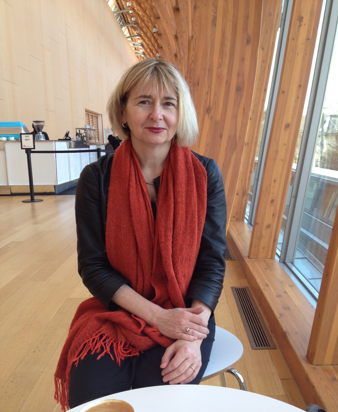
Lori Saint-Martin is a professor of literature, Université du Québec à Montréal, specializing in feminist theory and Quebec literature. She has published three collections of short stories and a novel as well as a dozen essays on contemporary Quebec literature. With Paul Gagné, she has translated 90 works of fiction and non-fiction from English to French and has won the Governor General’s Award for literary translation three times (2000, 2007 and 2015). She also translates from Spanish to French (Gustavo Nielsen, Le coeur de Doli, Strasbourg, La dernière goutte, 2015).
[1] Toute ma vie ressemble à un mur de briques grises, à une vue offerte sur une absence d’ouverture, sur un manque d’horizon» (PCM, 73)


